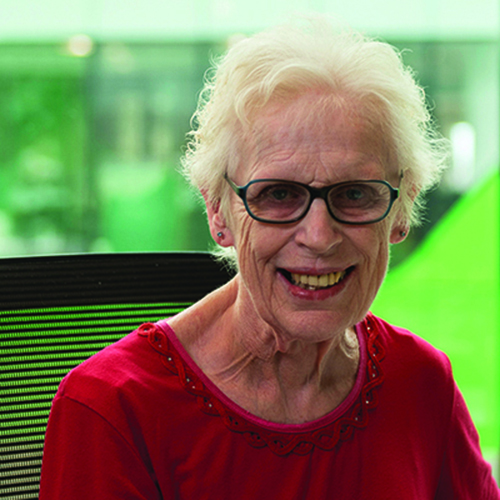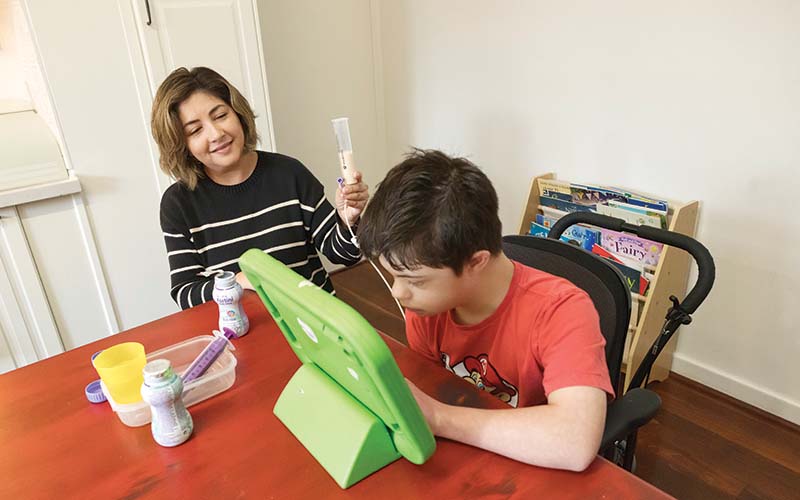Search
Research
Can telehealth increase physical activity in individuals with Rett syndrome? A multicentre randomized controlled trialTo evaluate the effects of a physical activity programme on sedentary behaviour and physical activity in ambulant individuals with Rett syndrome.

The Kids Research Institute Australia disability researcher, Associate Professor Helen Leonard, played an important role in the identification of the differences that define CDD, thanks to her extensive experience researching Rett syndrome and running an Australian online database tracking Rett cases.

For thousands of children around Australia with intellectual and other disabilities, the process of eating can be traumatic, posing challenges that veer from uncomfortable to life threatening.
Research
Access to Oral Healthcare in Individuals With Rett Syndrome: A Qualitative Study of Parent PerspectivesIntellectual and developmental disabilities (IDD) are varied in their nature and presentation. Barriers to oral healthcare are reported in studies of general populations with IDD but these may not reflect the barriers experienced by individuals with rare disorders such as Rett syndrome.
Research
Comparing home polysomnography with transcutaneous CO2 monitoring to laboratory polysomnography in children with neuromuscular disordersClinical utility of home polysomnography in children with neuromuscular disorders is limited by lack of evidence that sleep-disordered breathing can be reliably identified and inability to diagnose hypoventilation because carbon dioxide is not measured.
Research
Real-world benefits and tolerability of trofinetide for the treatment of Rett syndrome: The LOTUS studyAim: To describe the real-world effects of trofinetide in individuals with Rett syndrome (RTT) using the 18-month follow-up analysis of the LOTUS study.
Research
Making a Killer: Selecting the Optimal Natural Killer Cells for Improved ImmunotherapiesOver the past 20 years natural killer (NK) cell-based immunotherapies have emerged as a safe and effective treatment option for patients with relapsed or refractory leukemia. Unlike T cell-based therapies, NK cells harbor an innate capacity to eliminate malignant cells without prior sensitization and can be adoptively transferred between individuals without the need for extensive HLA matching.
Research
Retinoic Acid Induces an IFN-Driven Inflammatory Tumour Microenvironment, Sensitizing to Immune Checkpoint TherapyWith immune checkpoint therapy (ICT) having reshaped the treatment of many cancers, the next frontier is to identify and develop novel combination therapies to improve efficacy. Previously, we and others identified beneficial immunological effects of the vitamin A derivative tretinoin on anti-tumour immunity.
News & Events
Warburton Community book launchThe Kids Research Institute Australia Founding Director Professor Fiona Stanley will help launch a series of children's books on Monday, written by local Aboriginal people

News & Events
Boosting literacy in Aboriginal kidsAn NHMRC grant to develop a program to improve school outcomes in the Ngaanyatjarra lands has helped create books reflecting Aboriginal experiences.
